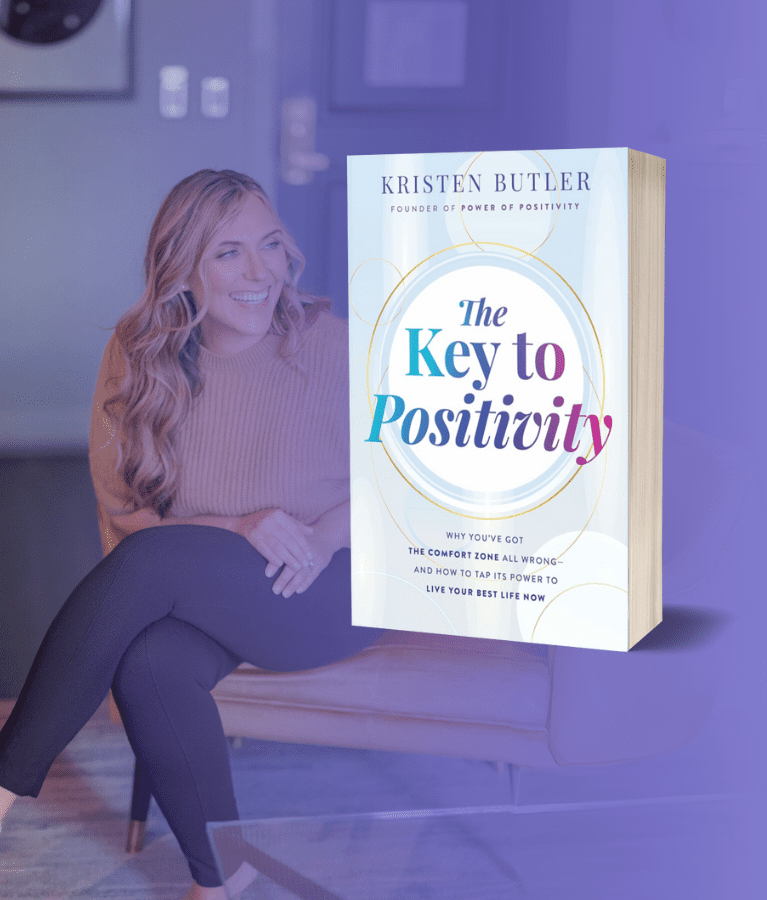The toxic combination of a narcissist + empath leads to heartbreak.
Why do narcissists attract empaths? Have you ever wondered why certain people seem to attract each other despite the obvious potential for a toxic relationship? One of the most intriguing and frequently discussed dynamics is the relationship between narcissists and empaths. This peculiar attraction often leads to intense, emotionally charged connections that can be captivating and damaging. Understanding why these two personality types are drawn to each other can shed light on the complexities of human interactions and provide valuable insights for anyone caught in this intricate dance.
This article looks at the reasons behind the undeniable attraction between narcissists and empaths. We will delve into the characteristics of each personality type, examine the dynamics of their interactions, and discuss the impact of such relationships on both parties. Our goal is to comprehensively understand this phenomenon and offer practical advice for empaths on protecting themselves from potentially harmful relationships.
Understanding Narcissists
Narcissism is a personality trait best known for its excessive focus on oneself, often to the detriment of others. Narcissists are typically self-centered, crave admiration, and have a profound need for validation. They often exhibit a lack of empathy, making it difficult for them to connect with others on an emotional level genuinely. Instead, they view relationships as opportunities to bolster their self-esteem and maintain control.
What Are the Key Traits of Narcissists?
Critical characteristics of narcissists include:
- A grandiose belief in their own self-importance.
- The preoccupation with fantasies of unlimited success and power.
- A strong sense of entitlement.
They often exploit others to achieve their goals, believing they deserve special treatment. This behavior can present itself in various ways, from subtle manipulation to overtly controlling actions.
Narcissists can be charming and charismatic in relationships, especially in the beginning. They have a knack for making others feel special and valued, which can be incredibly appealing. However, this charm is often superficial and serves as a means to an end. Once the narcissist feels confident in the relationship, their true colors may emerge. This phase leads to manipulation, emotional abuse, and a constant need for control.
The impact of selfish behavior on relationships can be profound. Partners of narcissists often find themselves feeling drained, undervalued, and confused. The narcissist’s lack of empathy and constant need for admiration can create a lopsided dynamic where the partner’s needs and feelings are consistently ignored. Understanding these characteristics is crucial to recognizing the patterns of narcissistic behavior and the potential dangers they pose in relationships.
Understanding Empaths
An empath is someone with a heightened ability to sense and absorb the emotions and/or energies of those around them. This trait goes beyond ordinary empathy; empaths often experience the feelings of those around them as if they were their own. This deep sensitivity allows them to connect with others profoundly, offering support, understanding, and compassion.
What Are the Key Traits of Empaths?
Key traits of empaths include:
- A strong intuition
- Nurturing inclinations
- Intense emotional depth and innate empathy
- High sensitivity
Empaths often choose “helping” professions and find fulfillment in aiding others. Empaths are excellent listeners and can quickly put themselves in others’ shoes. However, this heightened sensitivity also makes them vulnerable to emotional overwhelm, especially when exposed to negative energies or environments.
Empaths perceive the world emotionally, constantly picking up on subtle cues and undercurrents. This ability can make them incredibly supportive friends and partners, but it also comes with challenges. Because they feel so profoundly, empaths may struggle to distinguish their own emotions from those they absorb from others. This sensitivity can lead to emotional exhaustion and burnout if they do not set proper boundaries.
In relationships, empaths are typically giving and selfless, often prioritizing their partner’s needs above their own. Their natural inclination to look after others can sometimes lead them to attract individuals who take advantage of their kindness. Understanding the unique qualities of empaths is essential to appreciating why they might be drawn to, and simultaneously susceptible to, relationships with narcissists.
Why Are Empaths and Narcissists So Attracted to Each Other?
The initial attraction between narcissists and empaths can be incredibly intense. Narcissists are often charming and charismatic, qualities that can easily captivate an empath. To the empath, the narcissist’s confidence and magnetism are alluring. At the same time, the narcissist is drawn to the empath’s nurturing and compassionate nature. The empath’s ability to offer unwavering support and understanding is what the narcissist craves.
This dynamic creates a seemingly perfect match: the narcissist’s need for admiration is met by the empath’s desire to help and heal. The narcissist’s charm can make the empath feel unique and valued, fulfilling their deep-seated need to make a positive difference in someone’s life. This mutual fulfillment of needs forms the basis of their attraction.
However, the dynamics of this attraction are often rooted in imbalance. The narcissist’s need for validation can lead them to exploit the empath’s giving nature. The empath, in turn, may find themselves constantly trying to please the narcissist, hoping to maintain the initial warmth and admiration they received. It creates a cycle where the empath gives, and the narcissist takes, reinforcing their roles in the relationship.
The narcissist’s behavior can fulfill the empath’s need to care for others, but it often comes at a cost. Over time, the empath may feel drained and undervalued as their efforts go unrecognized or are taken for granted. This dynamic, while initially satisfying, can ultimately lead to an unhealthy and emotionally taxing relationship.

What Happens When Narcissists and Empaths Fall in Love?
When a narcissist and an empath enter into a relationship, the dynamics can be both captivating and tumultuous. Initially, the relationship is often characterized by a phase known as “idealization.” During this period, the narcissist showers the empath with attention, affection, and admiration, making them feel exceptional and valued. The empath, who thrives on deep emotional connections, is drawn in by this intense display of love and validation.
However, this idealization phase is typically short-lived. As the narcissist begins to feel secure in the relationship, their true nature starts to emerge. This shift marks the beginning of the “devaluation” phase. The narcissist’s charming facade fades, revealing manipulative and controlling behaviors. They may criticize the empath, make unreasonable demands, and use tactics like gaslighting to undermine their confidence and sense of reality.
This shift is confusing and painful. The person who once made them feel cherished now seems to undermine their self-worth constantly. Empaths, who naturally want to heal and support their partners, may work even harder to regain the initial affection and harmony. They might blame themselves for the relationship’s deterioration, not realizing that the narcissist’s behavior is a calculated manipulation.
The emotional rollercoaster created by these alternating phases of idealization and devaluation keeps the empath hooked. The intermittent reinforcement of affection and criticism can create a trauma bond, making it difficult for the empath to leave the relationship despite the emotional toll it takes. The struggle with setting boundaries exacerbates this situation, as they may continually sacrifice their own needs to appease the narcissist.
The Impact of Loving a Narcissist on the Empath
The emotional and psychological toll of a relationship with a narcissist can be devastating for an empath. Over time, constant giving without receiving adequate appreciation or support can lead to emotional exhaustion. The empath may start to feel drained, both mentally and physically, as the narcissist’s demands and manipulations constantly deplete their energy.
One of the most significant impacts on the empath is gradually erasing their self-esteem. The narcissist’s devaluation tactics, such as criticism, blame-shifting, and gaslighting, can make the empath question their worth and abilities. This can lead to a profound sense of inadequacy and self-doubt, undermining the empath’s confidence and sense of self.
Additionally, the empath’s deep emotional sensitivity makes them more susceptible to the psychological effects of the narcissist’s manipulations. They may experience anxiety, depression, and a combination of mental health issues as a result of the constant turmoil. The empath’s natural inclination to absorb others’ emotions can exacerbate these effects, as they not only deal with their own distress but also the negative energies projected by the narcissist.
The long-term effects on the empath’s mental health can be severe. Chronic stress from the relationship can lead to conditions like insomnia, chronic fatigue, and even physical health problems. The empath might also struggle with feelings of isolation and loneliness, as the narcissist’s manipulations can alienate them from friends and family who might otherwise offer support.
Understanding the impact of these relationships on empaths is crucial for recognizing the need for self-care and boundary-setting. By acknowledging the emotional toll and seeking support, empaths can begin to heal and protect themselves from further harm.
Breaking the Cycle of Abusive Love
Breaking free from narcissistic abuse can be challenging for empaths, but it is crucial for their emotional and mental well-being. The first step in shielding oneself is to recognize the earliest signs of narcissistic behavior. Understanding the typical traits and patterns of narcissists can help empaths identify red flags before becoming too deeply involved.
Setting boundaries is essential for empaths. Because they naturally prioritize others’ needs, empaths must learn to assert their limits and protect their emotional space. This might involve saying no to unreasonable demands, limiting contact with the narcissist, or even ending the relationship if it becomes too toxic. Empaths should remember that setting boundaries is not selfish; it is a necessary act of self-care.
Self-care practices are vital for empaths to maintain their well-being. Regular activities such as meditation, journaling, and time in nature can help empaths recharge and stay grounded. Engaging in hobbies and interests that bring back joy and fulfillment can also counterbalance the emotional drain caused by the narcissist.
Seeking support from trusted friends, family, or professionals is crucial. Talking to someone who understands and validates their experiences can provide much-needed emotional relief and perspective. Therapy can be particularly beneficial, offering strategies to cope with the narcissist’s manipulations and rebuild self-esteem.
Empaths should also discover more about healthy relationship dynamics. Understanding what a balanced, respectful relationship looks like can help them recognize and seek healthier connections. Learning to value and prioritize their needs and emotions is critical to breaking the cycle of toxic relationships and finding fulfillment in their interactions.
Final Thoughts on Why These Ill-Suited Personalities Attract One Another
The attraction between narcissists and empaths is a complex and often tumultuous dynamic. While the initial connection may seem magical, it often leads to an imbalanced relationship where the empath gives and the narcissist takes. Understanding the characteristics of both narcissists and empaths helps to shed light on why they are drawn to each other and how their interactions unfold.
Empaths, with their deep sensitivity and desire to help, can find themselves trapped in the narcissist’s web of manipulation and control. The emotional rollercoaster of idealization and devaluation can take a significant toll on the empath’s mental and emotional health, leading to feelings of exhaustion, self-doubt, and isolation.
However, by recognizing the signs of narcissistic behavior, setting firm boundaries, practicing self-care, and seeking support, empaths can protect themselves from harmful relationships. Breaking the cycle of narcissistic attraction is challenging but essential for empaths to reclaim their sense of self and find healthy, fulfilling connections.
Ultimately, understanding this dynamic empowers empaths to safeguard their well-being and highlights the importance of healthy relationships with mutual respect and genuine care. By prioritizing their own needs and learning to recognize healthy relationship patterns, empaths can create a more balanced and joyful life.



















